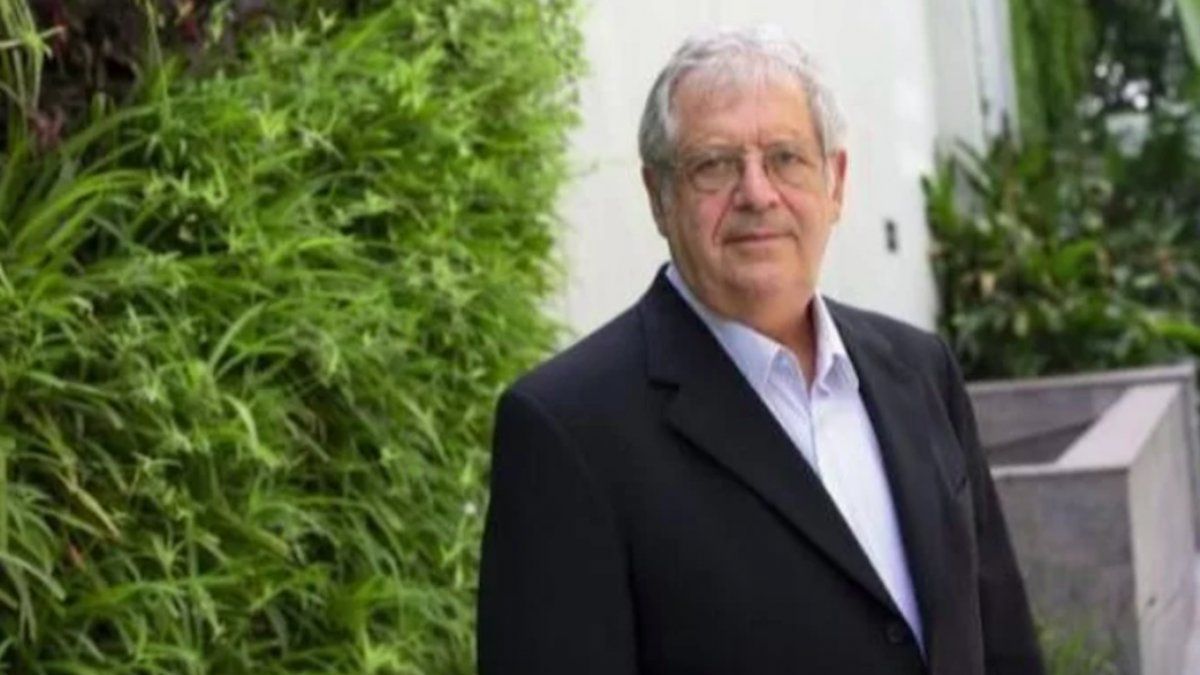Gabriel Rubinstein: Well, I think at this moment there is a lot of focus on lowering inflation understanding that this is an important political asset that would allow him to have a good election in 2025 and keep him as a very competitive candidate for 2027.
It is a path that is founded on a decision to maintain fiscal balance at all costs. But that path is full of pitfalls.
The most important is that They are embarked on a very fragile exchange rate scheme and that it seems to continue to be fragile all the time, which does not mean that there will be a crisis, but In any case, this vulnerability could cause an exchange crisis and somewhat disrupt the Government’s plans.
Therefore, for Caputo to say that the risk of crisis was eliminated is false, it is a voluntaristic appreciation.
Q: Why do you say that?
GR: Because They are selling practically the entire commercial surplus in cash with liquidationThat is, 20% of what they export they permanently sell, so they have an important and permanent exchange intervention to keep the gap contained.
In a context of money laundering, where dollars enter and part of those dollars are sold against pesos, this moment is calm and favorable, but that does not mean that you do not have approximately US$100,000 million at the official exchange rate in pesos, that is, one enormous mass of pesos against no reserves.
This means that any situation of external or political shock can cause the dollar to rise and you cannot contain it, You have a possible currency crisis around the corner. When they tell you that the fiscal surplus policy is enough and that we don’t need dollars is a fallacy, they are saying that simply because they don’t have dollars.
Q: Isn’t the fact that people sell dollars a sign that pesos are actually missing?
GR.: That is not a matter of missing pesos but rather lack of income. You are forced to do that, but it is not a permanent scheme, you are not going to live permanently dissaving.
Q: How much could the possibility of carrying out a REPO, as revealed in recent days, alleviate the exchange fragility that you warn about?
GR: In a fragile exchange rate scheme, It is always a help to receive money. But I see it as a sign of weakness to have so much trouble to get three or four billion dollars and at 17% annually – as it turned out, it is not confirmed.
It is true that one day the blend dollar should end and the currencies should be bought by the Central Bank, but that means having to face a higher gap. On the other hand, you are going to have to give something to the exporters who are struggling, because between the gap, the withholdings and with all the costs rising, the profitability of the field is going to hell.
Q: Does the DNU that relaxes the conditions for an upcoming debt swap also read it as a sign of weakness?
GR.: The debt exchange system confirms that They will postpone the release of the stocks, that they do not have reserves to pay their debts and that is why they cannot access the markets very voluntarily.
Q: Does the Budget project promise greater fiscal austerity? Can that idea be complemented by 5% GDP growth?
GR: It is not a fiscally contractionary budget. My proposal when I worked with Massa (Sergio) was that this year we would have 1% fiscal surplus, instead of 1.5%, and move every year towards 3% surplus, which is what I consider Argentina needs to lower country risk strongly. But the process was going to be more gradual. In any case, at this moment there is no major fiscal adjustment and I think that, given the surveys that are beginning to show certain weaknesses in the image, It is likely that the Government prefers not to talk more about adjustment and improve its quality a little within the fiscal accounts.
Q: How much of the fiscal adjustment drove the current recession?
GR: Fiscal adjustment has a positive aspect that has to do with assuming that there must be balance in public accounts. The negative part is that it is associated with recession, and in the future it may happen that governments become fiscally expansive again. I evaluate that the contribution of the fiscal adjustment to the recession is low, that he problem was a low-quality devaluation scheme. They promoted dollarization without dollars and the closure of the Central Bank. That, in the markets’ imagination, meant that the dollar was going to hell. They went so far as to say that hyperinflation would be good to facilitate the path to dollarization. Once in power, prices were set at a very high dollar, of course.
Then they said that weight will be a rare commodity, strong as a rock. All of this had its cost and we had a much bigger recession than was technically necessarya small recession that would only last a couple of months and nothing more. In my scheme, the real salary after two months would have recovered what was lost. Now we find that going forward the situation will be better, but very little by little, it will take several months.
Q: So, it was not necessary to reach 52.9% poverty in Argentina.
GR: No, totally. Impoverishing fiscal adjustments are those that come hand in hand with external adjustments when there is capital flight, because we have to accommodate this lack of money and the rise in poverty is inevitable. When you do not have capital flight, the adjustment does not have to be recessive or can be marginally recessive.
Recessions are fruit of an error in the design of economic policy, In this case, the result of the improvisation that they have had, which can be understood because they did not have a team nor did they think that they were going to win. It is not true that we are in the worst crisis in history, it is not true that we came from 17,000% inflation, the flurry of numbers and data is wrong. Sometimes it can be well-intentioned and just a mistake in concept and other times I think it is malicious. I don’t think the powers of heaven agree with them lying about those things.
Q: I see that when you make comments on Twitter about the current administration, they remind you of your time at the Ministry of Economy. Do you have any self-criticism or, in the extreme, do you regret having been part of the previous government?
GR: I also criticize what was done and what I could not do. I am self-critical, but I have no regrets. The reality was also much harsher than one thought. Nobody assumed that in such a short time we were going to have a drought that will cost us US$21,000 million, it will completely condition us throughout 2023.
I did what I could, I proposed the things I proposed and some went in that direction, because At first there was some fiscal adjustment. In fact, notice that no matter how much there is talk about the silver plan, the fiscal deficit in 2023 ended up being 2.7% of GDP, the same deficit as in 2022, but with the aggravating factor of the drought, that is, mathematically it implied a greater effort .
In any case, it is true that the last few months, with the elections in the middlethere was a forced demonstration process and we also practiced a poorly done devaluation, at the wrong time and without dollars, promoted by the IMF because otherwise we would default. Prior to the devaluation, the blue dollar had already risen 20% and then Milei won the PASO. In this context, we seek reparatory measures for the damage of the devaluation, which was greater than expected. But Then fiscal measures were applied that I did not support, such as lowering the Income Tax.
I had the opportunity to participate in the management, but It frustrates me that I haven’t been able to do things that I wanted to put into practice.
Source: Ambito




